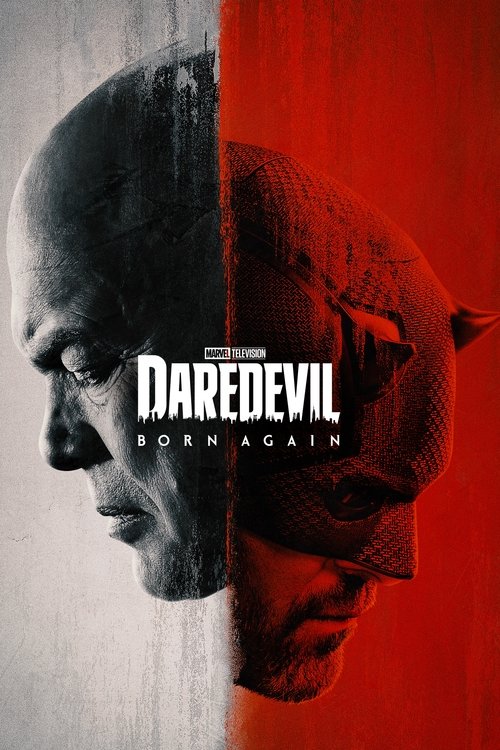
Ask Your Own Question
What is the plot?
The episode begins with a chilling scene in Central City, where a man named Dr. Ramsey Rosso, also known as Bloodwork, is seen in a darkened room, surrounded by medical equipment. He is conducting experiments on himself, driven by his obsession to conquer death and fear. The atmosphere is tense, filled with a sense of dread as he injects himself with a serum, which enhances his powers but also amplifies his darker impulses.
Cut to Team Flash at STAR Labs, where Barry Allen, aka The Flash, is discussing the recent surge of fear-related incidents in the city. The team is on high alert, as they realize that a new threat is emerging. Barry expresses his concern about the psychological impact these events are having on the citizens of Central City. Iris West-Allen, Barry's wife, is supportive but also worried about the toll this is taking on Barry, who feels the weight of responsibility to protect everyone.
As the team investigates, they discover that the fear-inducing incidents are linked to a new villain, who is revealed to be a manifestation of fear itself. This villain, known as the "Fear Monster," begins to target individuals, feeding off their deepest fears and insecurities. The team realizes they need to confront this entity before it spirals out of control.
In a pivotal scene, Barry and the team confront the Fear Monster in a dark alley. The creature takes on the form of their worst fears, causing chaos and panic. Barry faces his own fear of losing his loved ones, which momentarily paralyzes him. However, with the encouragement of his teammates, he manages to push through the fear and engages the monster in a high-speed battle. The fight is intense, with Barry using his speed to dodge the monster's attacks while trying to find a way to weaken it.
Meanwhile, Iris is dealing with her own fears, which manifest in a separate confrontation with the Fear Monster. She faces visions of losing Barry and their future together. This emotional struggle is depicted with powerful visuals, showcasing her vulnerability. Ultimately, she finds strength in her love for Barry, which helps her overcome the fear and support him in the fight against the monster.
As the battle continues, the Fear Monster grows stronger, feeding off the fear of the citizens. Team Flash realizes they need to work together to defeat it. Cisco Ramon, using his tech skills, devises a plan to create a device that can amplify their positive emotions, countering the fear. The team rallies together, each sharing their own moments of courage and hope, which empowers them to face the monster.
In the climax of the episode, Barry, Iris, and the rest of Team Flash confront the Fear Monster one last time. They activate Cisco's device, which emits a wave of positive energy. The Fear Monster, overwhelmed by the collective strength of their hope and love, begins to weaken. Barry seizes the moment, using his speed to deliver a final blow that dissipates the monster into nothingness.
With the threat neutralized, the team reflects on the battle they just faced. Barry expresses gratitude for his friends and family, acknowledging that their support is what gives him strength. Iris reassures him that they will always face their fears together, reinforcing their bond. The episode ends on a hopeful note, with the team united and ready to face whatever challenges may come next.
What is the ending?
In the ending of "Fear Me," Barry Allen confronts the villain Psych, who has been manipulating people's fears. After a tense battle, Barry manages to overcome his own fears and defeats Psych, freeing the citizens of Central City from his influence. The episode concludes with Barry reflecting on the importance of facing one's fears and the support of his friends and family.
As the episode nears its conclusion, the tension escalates. Barry Allen, having faced the psychological torment inflicted by Psych, stands in the heart of Central City, where the air is thick with fear and uncertainty. The streets are eerily quiet, a stark contrast to the usual vibrancy of the city. Citizens are paralyzed by their worst fears, and Barry feels the weight of their despair pressing down on him.
In a pivotal scene, Barry confronts Psych, who is reveling in the chaos he has created. Psych, with his dark, twisted smile, taunts Barry, reminding him of his own insecurities and fears. Barry's internal struggle is palpable; he grapples with the fear of failure, the fear of losing his loved ones, and the fear of not being enough. The camera captures the flicker of doubt in Barry's eyes, a moment of vulnerability that humanizes the hero.
As the confrontation escalates, Barry taps into the strength of his relationships. He recalls the support of his friends and family, particularly Iris, who has always believed in him. This memory ignites a spark of determination within him. The scene shifts to a montage of his loved ones, their faces filled with encouragement and love, reminding him that he is not alone in this fight.
With renewed resolve, Barry charges at Psych, using his speed to create a whirlwind that disrupts Psych's control over the citizens. The visual effects are stunning, with vibrant colors swirling around as Barry harnesses the power of hope and courage. In a climactic moment, he confronts Psych directly, declaring that fear cannot control him. The battle is intense, with flashes of lightning and bursts of energy as Barry finally overcomes Psych's influence.
As Psych is defeated, the citizens of Central City begin to awaken from their fear-induced stupor. The camera pans over their relieved faces, showcasing the relief and gratitude that washes over them. Barry stands tall, a symbol of resilience, as he watches the city slowly return to life.
In the final moments of the episode, Barry reflects on the experience with his team at STAR Labs. They gather around, sharing their own fears and how they have learned to confront them. Barry emphasizes the importance of facing fears head-on, not just for themselves but for the people they protect. The camaraderie among the team is palpable, reinforcing the theme of unity and support.
The episode closes with Barry and Iris sharing a quiet moment, where they reaffirm their commitment to each other and their shared journey. Barry's expression is one of hope and determination, knowing that while fear may always exist, it is the love and support of those around him that will help him face whatever challenges lie ahead. The screen fades to black, leaving viewers with a sense of closure and the promise of new adventures to come.
Is there a post-credit scene?
In "Fear Me," the fifth episode of Season 7 of The Flash, there is no post-credit scene. The episode concludes without any additional scenes after the credits roll, focusing instead on the resolution of the main storyline involving the character of Psych and the emotional struggles faced by Barry Allen and his team. The episode wraps up the narrative without teasing future events or introducing new plot elements in a post-credit format.
What powers does the new villain Psych possess in this episode?
In 'Fear Me', the new villain Psych, also known as the psychic villain, possesses the ability to manipulate fear. He can project terrifying illusions into the minds of his victims, causing them to experience their worst fears as if they were real. This power creates a psychological torment that affects not only the individuals but also the city of Central City.
How does Barry Allen confront his own fears in this episode?
Barry Allen confronts his own fears when he faces the psychological onslaught from Psych. Throughout the episode, he is haunted by visions of his past failures and the fear of losing his loved ones. This internal struggle is depicted through intense visual sequences where Barry is shown grappling with his insecurities, ultimately leading him to seek support from his team and confront the source of his fears.
What role does Iris West play in this episode regarding Barry's fears?
Iris West plays a crucial role in this episode as she becomes a source of emotional support for Barry. When Barry is overwhelmed by his fears, Iris encourages him to confront them rather than run away. Her unwavering belief in him helps Barry regain his confidence and focus, showcasing the strength of their relationship amidst the chaos caused by Psych.
How does the team at STAR Labs respond to the threat posed by Psych?
The team at STAR Labs responds to the threat posed by Psych by working together to devise a plan to counteract his fear-inducing powers. They analyze Psych's abilities and strategize on how to protect the citizens of Central City. Cisco and Caitlin contribute their technical expertise, while Joe West provides tactical support, emphasizing the importance of teamwork in overcoming the psychological threat.
What is the significance of the title 'Fear Me' in relation to the episode's events?
The title 'Fear Me' is significant as it encapsulates the central theme of the episode, which revolves around the manipulation of fear. Psych's ability to instill fear in others serves as a metaphor for the internal struggles faced by the characters, particularly Barry. The title reflects not only the villain's power but also the personal battles that each character must confront, making it a pivotal element of the narrative.
Is this family friendly?
In "Fear Me," Season 7, Episode 5 of The Flash, there are several elements that may be considered objectionable or upsetting for children or sensitive viewers:
-
Fear-Inducing Themes: The episode revolves around the concept of fear and how it can manifest in various ways, which may be unsettling for younger viewers.
-
Intense Emotional Moments: Characters experience significant emotional distress, including anxiety and panic, which could resonate negatively with sensitive audiences.
-
Supernatural Elements: The presence of a villain who can manipulate fear may be frightening, especially for children who are sensitive to horror or supernatural themes.
-
Violence: There are action sequences that include fighting and physical confrontations, which may be intense for younger viewers.
-
Dark Imagery: The visual representation of fear and its effects on characters can be dark and may evoke feelings of dread or discomfort.
These aspects may require parental discretion depending on the viewer's age and sensitivity to such themes.

















